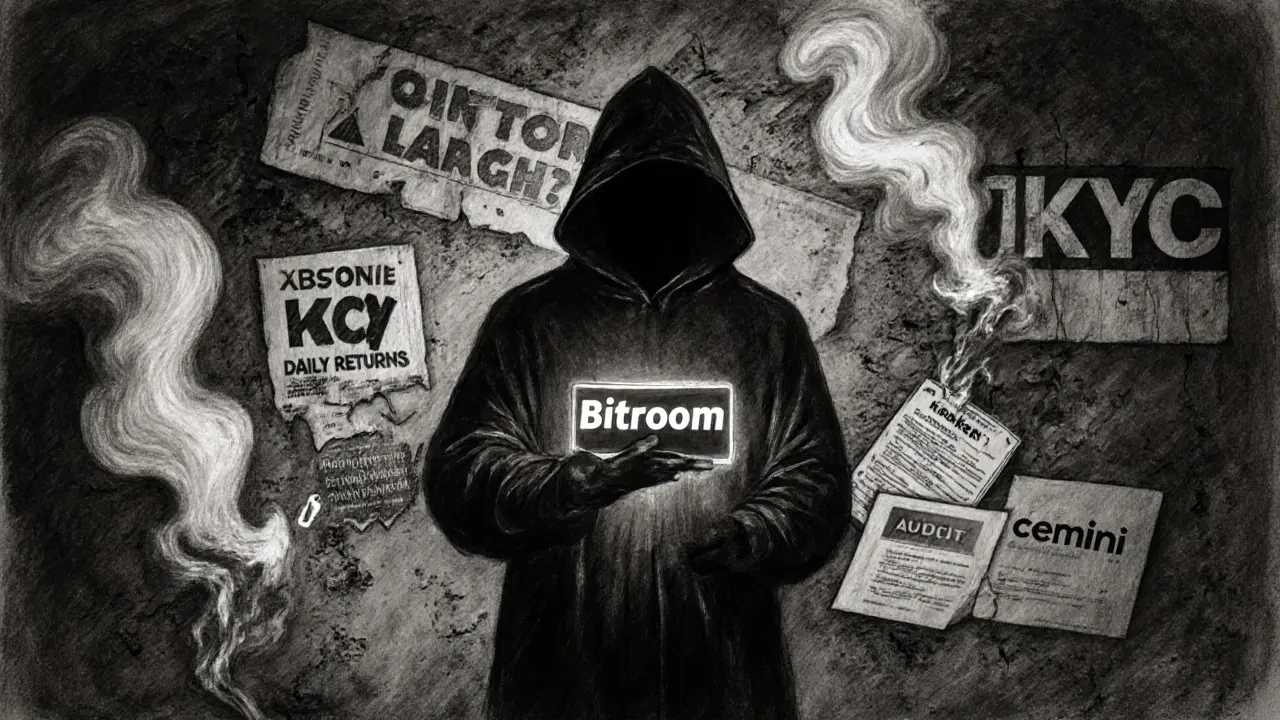Bitroom is not a legitimate crypto exchange - it's a scam. Learn how the fraud works, red flags to watch for, and where to trade safely instead.
Bitroom Crypto Exchange: Facts, Alternatives, and What to Watch in 2025
When you hear Bitroom crypto exchange, a lesser-known trading platform with no public trading volume or verified team. Also known as Bitroom.io, it’s one of many platforms that appear online but vanish from public records—unlike Binance, which handles over $20 billion daily, or Uniswap, where anyone can verify trades on-chain. Most users don’t realize how many exchanges operate without audits, liquidity reports, or even a working website. If a platform doesn’t show up on CoinMarketCap or CoinGecko, it’s not just new—it’s unverified.
Why does this matter? Because your crypto isn’t safe on platforms that hide their numbers. Exchanges like Bitay and Azbit at least publish fees and features, even if they’re small. Bitroom doesn’t. It’s like buying a car with no odometer, no service history, and no VIN. You might get lucky, but you’re gambling with assets that can’t be recovered. Real exchanges—like Binance or Instant Bitex (before it closed)—show their data openly. That’s how you know they’re not running a shell game.
What you’ll find below aren’t just reviews. They’re warnings, breakdowns, and real stories from traders who lost time—or money—on platforms that looked legit until they vanished. You’ll see how LGO Markets disappeared after its parent company collapsed, how Instant Bitex shut down without notice, and why a 0% fee doesn’t mean a platform is safe. These aren’t hypotheticals. They’re patterns. And if you’re considering Bitroom or anything like it, you need to see the full picture before you deposit a single coin.

